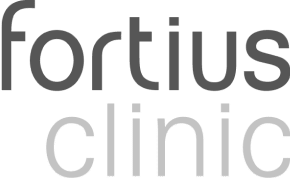Facing Challenges with EMR Adoption?
Switching to an Electronic Medical Record (EMR) system is a significant change for any healthcare practice. From staff resistance to the complexities of data migration, there are plenty of challenges to overcome. But the benefits of a successful EMR adoption make these challenges worth tackling.
Let’s look at some of the common obstacles to EMR software adoption and how to overcome them – with a focus on how Meddbase can support you every step of the way.
1. Staff Resistance to Change
One of the biggest hurdles in adopting an EMR system is staff resistance. Your team is already comfortable with the current workflow, and they may fear that EMR will make their jobs harder.
- Communicate the Benefits: From the outset, communicate clearly about why the transition is happening. Highlight the ways EMR can improve their day-to-day work – like reducing paperwork, automating scheduling, and providing easier access to patient records.
- Involve Staff in Decision-Making: Get input from your team early in the process. People are more likely to embrace change if they feel part of it. Ask about their current pain points and use these insights to demonstrate how Meddbase addresses their needs.
- Provide Comprehensive Training: Proper training can alleviate fear of the unknown. Meddbase offers role-specific training tailored to different users, making the transition more manageable for everyone.
Related Content: Step-by-Step Guide to EMR Implementation with Meddbase.
2. Costs and Budget Concerns
Concerns about the cost of implementation can also make practices hesitant to adopt an EMR. While there is an initial investment, the long-term benefits make it a smart choice.
- Flexible Pricing Models: Meddbase offers pricing plans that can be adjusted based on the size and requirements of your practice. This flexibility can help you manage costs more effectively.
- Long-Term Savings: Emphasise the cost-saving benefits that come with EMR. Over time, Meddbase helps reduce expenses by minimising manual paperwork, streamlining billing, and cutting down on storage costs.
- Calculate ROI: Use tools to calculate the return on investment (ROI) from implementing EMR software. The efficiency improvements, reduced errors, and saved staff hours add up over time, turning the initial investment into savings.
External Resource: Guide to calculating ROI on healthcare technology.
3. Data Migration Challenges
Moving patient data from paper or another system to Meddbase can seem intimidating. The thought of losing critical data or the complexity of handling large volumes can be overwhelming.
- Preparation Is Key: Before migrating data, clean up your existing records – remove duplicates and correct outdated information. This makes the actual migration smoother and less prone to errors.
- Expert Migration Support: Meddbase provides migration assistance that ensures data is securely transferred. With dedicated support, you can ensure that all your records make it over to the new system intact.
- Testing: Test the migration process thoroughly before the official launch. This way, you can address any data discrepancies without affecting patient care.
Related Content: Implementing Medical EMR Software in Your Practice.
4. Disruption of Daily Operations
Healthcare practices often worry that switching to EMR will disrupt day-to-day activities, affecting patient care and causing workflow interruptions.
- Phased Rollout: Consider a phased approach. Instead of switching everything at once, roll out features gradually. Meddbase allows you to start with core modules, such as appointment scheduling, and then add more features over time.
- Training on Real Scenarios: Provide training that mirrors real scenarios so staff can practice before the official go-live. Hands-on experience makes the learning curve easier and reduces the disruption on go-live day.
- Schedule Downtime Wisely: Plan the transition during a period when your patient load is lighter to avoid overwhelming the team during the early stages.
5. Privacy and Compliance Concerns
Data privacy is always a major concern, especially with the sensitive nature of medical information. Any new system must comply with regulatory standards such as HIPAA and GDPR.
- Built-In Compliance Features: Meddbase includes compliance features that adhere to regulations like HIPAA and GDPR. Your practice can confidently manage patient information while staying compliant.
- Secure Access Controls: Meddbase uses multi-factor authentication (MFA) and role-based access control (RBAC) to ensure that only authorised personnel have access to specific patient data. This enhances the overall security of your practice.
- Audit Trails: Detailed audit trails are also available to track who accessed data and when. This transparency helps maintain compliance and adds an extra layer of security.
External Resource: More on HIPAA compliance in EMR systems.
6. Learning Curve and Technical Issues
There’s no doubt that adopting new software can come with a learning curve and technical hiccups. This can be a major concern, particularly for staff who are not tech-savvy.
- Customised Training: Meddbase provides customised training sessions for different roles within your practice, ensuring that each staff member understands their specific tasks in the new system.
- Ongoing Support: Support doesn’t stop once you’re up and running. Meddbase provides ongoing helpdesk support for any issues that arise, making sure the learning curve flattens out as quickly as possible.
- Focus on Simplicity: The Meddbase platform is designed with an intuitive interface that makes it easy to use, even for those less experienced with technology.
Related Content: How Meddbase Enhances Workflow Efficiency in Clinics.
FAQs About EMR Software Adoption Challenges
How do we make sure our team is on board with the new EMR system?
Communication and training are key. Involve your staff from the beginning, take their input seriously, and provide role-based training to ensure they feel prepared and comfortable.
What if our data migration fails?
Meddbase offers expert assistance for data migration and includes thorough testing phases to prevent data loss or discrepancies.
How long does it take to get comfortable with the new system?
While there’s a learning curve, with comprehensive training, most staff members start to feel comfortable within a few weeks. Ongoing support is always available.
What about maintaining data privacy during the transition?
Meddbase complies with all relevant regulations like HIPAA and GDPR, using strong encryption and access controls to keep patient data secure.
Overcome the Challenges with Meddbase
Adopting an EMR system can seem challenging, but with the right strategies and the right support, these obstacles can be overcome. Meddbase provides comprehensive features to help your practice transition smoothly, from initial planning to ongoing support after going live.
With its focus on data security, staff training, and seamless integration, Meddbase is designed to help healthcare practices overcome the hurdles of EMR adoption and start reaping the benefits sooner.
Want to learn more about overcoming EMR adoption challenges with Meddbase? Request a demo today.
Related Content:
- Step-by-Step Guide to EMR Implementation with Meddbase
- Best Practices for EMR Security and Patient Data Protection
External Resources:













